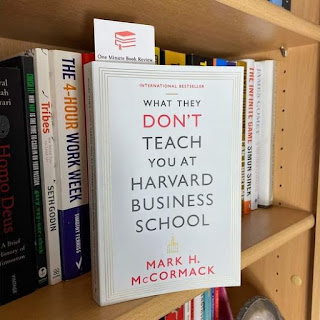I enjoyed it and You will too.
Skills I need to develop to become wealthy...
Becoming wealthy typically involves a mix of financial savvy, strategic thinking, and personal development. Here are some skills that can help you on your path to wealth:
1. Financial Literacy: Understanding how money works, including budgeting, saving, investing, and managing debt. Familiarize yourself with concepts like compound interest, asset allocation, and financial statements.
2. Investment Knowledge: Learn about different types of investments (stocks, bonds, real estate, mutual funds, etc.) and how to evaluate them. Knowing how to diversify your investments and assess risk is crucial.
3. Entrepreneurial Skills: If you're starting a business, skills like innovation, problem-solving, and risk management are key. Being able to identify opportunities and turn ideas into profitable ventures can drive significant wealth.
4. Networking: Building and maintaining a strong professional network can open doors to opportunities, partnerships, and insights that might otherwise be inaccessible.
5. Negotiation: Effective negotiation can help you secure better deals, whether in business transactions, salary discussions, or purchasing assets.
6. Sales and Marketing: Understanding how to market yourself or your business and effectively sell products or services can significantly impact your earning potential.
7. Strategic Planning: Setting long-term goals and developing a roadmap to achieve them is important for building and sustaining wealth. This involves setting financial goals, creating a plan, and regularly reviewing and adjusting it as needed.
8. Risk Management: Identifying potential risks and creating strategies to mitigate them is essential, whether you're investing, starting a business, or managing personal finances.
9. Self-Discipline and Focus: Wealth accumulation often requires making consistent, disciplined efforts over time. Staying focused on your financial goals and avoiding impulsive decisions is crucial.
10. Continuous Learning: The financial landscape is always evolving. Staying informed about new trends, technologies, and economic changes can help you make better decisions and adapt to new opportunities.
Beyond the foundational skills, here are additional skills and qualities that can contribute to building and sustaining wealth:
1. Leadership and Management: Effective leadership can help you build and manage teams, make strategic decisions, and drive your business or career forward. Good management ensures that resources are used efficiently and goals are met.
2. Time Management: Prioritizing tasks and managing your time effectively allows you to focus on high-impact activities and make the most of opportunities. It helps in balancing short-term tasks with long-term strategic goals.
3. Emotional Intelligence: Being aware of and managing your own emotions, as well as understanding and influencing others’ emotions, can improve your relationships, leadership, and negotiation skills.
4. Innovation and Creativity: The ability to think outside the box and come up with new ideas or approaches can lead to unique opportunities and solutions, whether in business, investing, or problem-solving.
5. Analytical Thinking: Strong analytical skills help in evaluating data, making informed decisions, and identifying trends or patterns that can influence financial strategies and investments.
6. Decision-Making: Being able to make well-informed and timely decisions is crucial. This involves evaluating options, weighing risks and benefits, and taking decisive actions.
7. Adaptability: The ability to adjust to changing circumstances and market conditions can help you navigate uncertainties and capitalize on new opportunities.
8. Negotiation Skills: Mastering the art of negotiation can help you achieve better deals, whether in business deals, salaries, or purchasing assets. It involves understanding both sides of an issue and finding mutually beneficial solutions.
9. Sales Skills: Whether you’re selling a product, a service, or yourself, being persuasive and able to close deals is valuable. It involves understanding customer needs and effectively communicating value.
10. Financial Planning: Developing comprehensive financial plans that include budgeting, saving, investing, and retirement planning helps ensure that you’re working towards long-term financial stability.
11. Tax Optimization: Understanding tax laws and strategies for minimizing tax liabilities can help you keep more of your income and investments, increasing your overall wealth.
12. Legal Knowledge: Having a basic understanding of legal matters related to business, contracts, intellectual property, and estate planning can protect your assets and ensure compliance.
13. Health and Wellness: Maintaining good health and well-being ensures that you have the energy and stamina to pursue your financial goals. Investing in your health can also reduce long-term medical expenses.
14. Crisis Management: Being able to handle unexpected challenges or downturns effectively can help you protect and recover your financial position during tough times.
15. Relationship Building: Building strong, positive relationships with clients, partners, and mentors can lead to opportunities, referrals, and support that can enhance your financial success.
16. Personal Branding: Cultivating a strong personal brand can enhance your professional reputation and open doors to new opportunities, whether in career advancement or entrepreneurial ventures.
Developing these skills often requires a combination of education, experience, and continuous personal growth. As you refine them, you'll be better equipped to navigate the complexities of wealth-building and seize opportunities that come your way.
More to read:






























